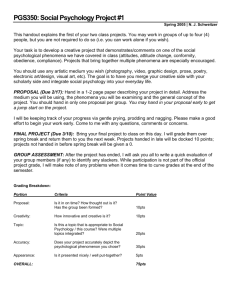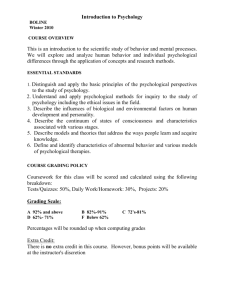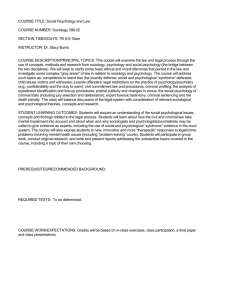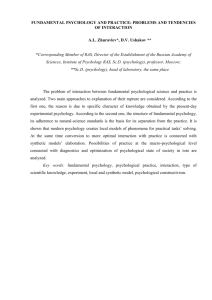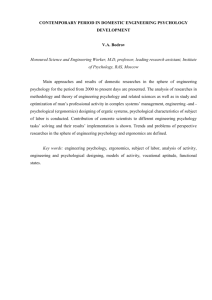Psychology of Conflict and Conflict Resolution
advertisement
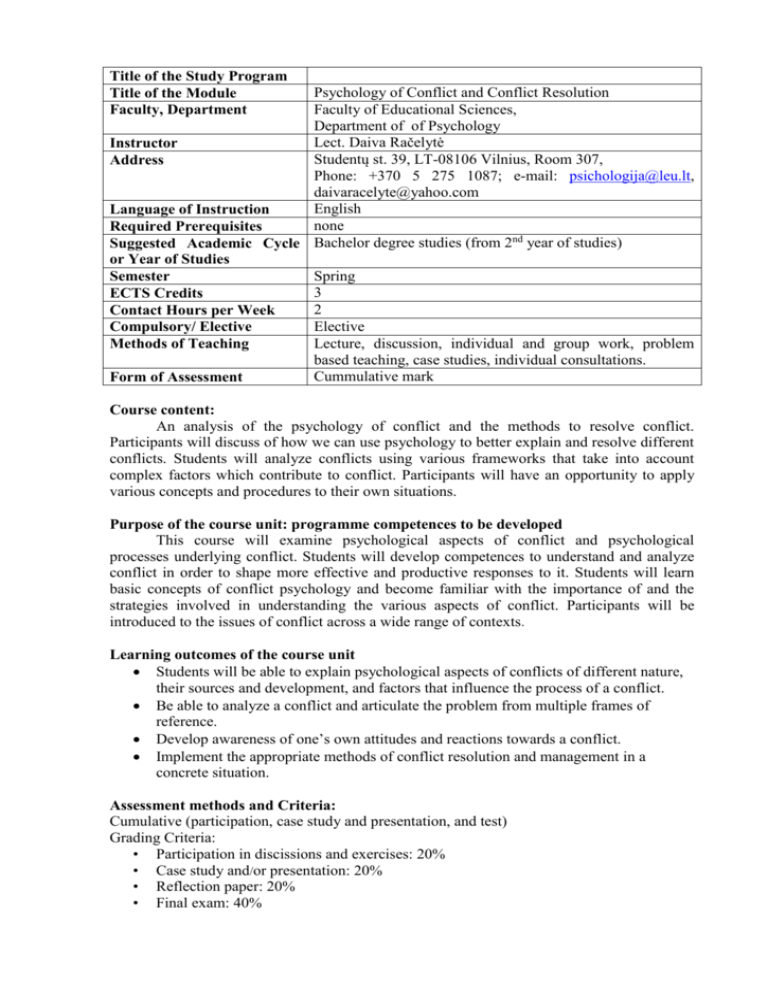
Title of the Study Program Title of the Module Faculty, Department Psychology of Conflict and Conflict Resolution Faculty of Educational Sciences, Department of of Psychology Lect. Daiva Račelytė Instructor Studentų st. 39, LT-08106 Vilnius, Room 307, Address Phone: +370 5 275 1087; e-mail: psichologija@leu.lt, daivaracelyte@yahoo.com English Language of Instruction none Required Prerequisites Suggested Academic Cycle Bachelor degree studies (from 2nd year of studies) or Year of Studies Spring Semester 3 ECTS Credits 2 Contact Hours per Week Elective Compulsory/ Elective Lecture, discussion, individual and group work, problem Methods of Teaching based teaching, case studies, individual consultations. Cummulative mark Form of Assessment Course content: An analysis of the psychology of conflict and the methods to resolve conflict. Participants will discuss of how we can use psychology to better explain and resolve different conflicts. Students will analyze conflicts using various frameworks that take into account complex factors which contribute to conflict. Participants will have an opportunity to apply various concepts and procedures to their own situations. Purpose of the course unit: programme competences to be developed This course will examine psychological aspects of conflict and psychological processes underlying conflict. Students will develop competences to understand and analyze conflict in order to shape more effective and productive responses to it. Students will learn basic concepts of conflict psychology and become familiar with the importance of and the strategies involved in understanding the various aspects of conflict. Participants will be introduced to the issues of conflict across a wide range of contexts. Learning outcomes of the course unit Students will be able to explain psychological aspects of conflicts of different nature, their sources and development, and factors that influence the process of a conflict. Be able to analyze a conflict and articulate the problem from multiple frames of reference. Develop awareness of one’s own attitudes and reactions towards a conflict. Implement the appropriate methods of conflict resolution and management in a concrete situation. Assessment methods and Criteria: Cumulative (participation, case study and presentation, and test) Grading Criteria: • Participation in discissions and exercises: 20% • Case study and/or presentation: 20% • Reflection paper: 20% • Final exam: 40% Readings 1. Folger, J. P., Poole, M. S., Stutman, R. K. Working through Conflict: Strategies for Relationships, Groups, and Organizations. – Boston: Pearson, 2005. 2. Mayer B. The Dynamics of Conflict: a Guide to Engagement and Intervention. – San Francisco: John Wiley & Sons, 2012. 3. Mayer B. Staying with Conflict: a Strategic Approach to Ongoing Disputes. – San Francisco: Jossey-Bass, 2009. 4. Pruitt, D.G., Kim, S. H. Social Conflict: Escalation, Stalemate, and Settlement. – Boston: McGraw-Hill, 2004. 5. Wilmot, W. W., Hocker, J. Interpersonal Conflict. – New-York: McGraw-Hill, 2011.



